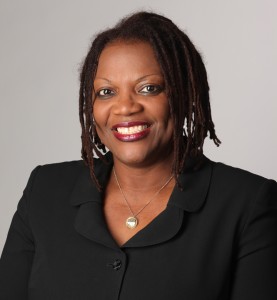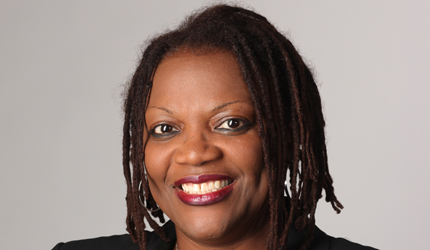
“Church Swap” is the brainchild of Ramona Curtis, director for the Academy of Leader Development and Civic Engagement. The project encourages members of the faith community to experience worship in a new way.
Changing the face of the congregation
By Jade Mardirosian
Staff Writer
Baylor’s Academy for Leader Development and Civic Engagement is partnering with Waco’s Community Race Relations Coalition on a project that will work toward racial healing in the community through “swapping churches.”
The project is “A Grassroots Approach to Dismantling the Most Segregated Hour in America,” or “Church Swap” for short, and works by having its participants attend a church of their same religious denomination, but of a race other than their own.
Ramona Curtis, director for the Academy for Leader Development and Civic Engagement, is the driving force behind the project, which is being funded by a grant from the Kellogg Foundation.
“Particularly in Waco our churches are segregated. We have all these different denominations but we are segregated,” Curtis said. “Some people have never experienced what it would be like to be integrated at that hour and so I thought that might transform a community.”
Curtis has attended predominantly African-American churches throughout her life, up until a few years ago. Around the time her son went to college she began attending Lake Shore United Methodist Church, which has a predominantly white congregation.
Curtis has done extensive research on segregation in churches and the reasons people worship in a congregation that shares the same race.
Dr. Kevin Dougherty, assistant professor of sociology at Baylor, has done extensive research on segregation in churches, some of which has been used by Curtis toward the church swap project.
He explains people have many reasons for choosing to attend a church that is predominantly their own race.
“People choose a place to worship where they feel comfortable,” Dougherty said. “They want to be with others that share similar beliefs, sing similar songs and are like them in other ways as well. For most Americans, being comfortable involves being around people of the same cultural background.”
Participants in the project can expect to see changes in themselves as well as those close to them, Jo Welter, board chair of Community Race Relations Coalition, said.
“We are hoping that the participants in the swap will have expectations, then have experiences, and then share how their expectations were met or how reality was different than their expectations,” Welter said. “What we know is that each of us as an individual influences the people in their circle of influence. When one person’s behavior changes, then the behavior of the people around them automatically does.”
Dougherty stresses that people must have willingness and a commitment in order to benefit from attending a church of a predominantly different race than their own.
“Unless people see value in diversity, there is no motivation to worship with others different than themselves,” Dougherty said. “Accommodating differences in congregations will come with difficulties. Church may not always be comfortable; it might be challenging at times. A commitment to being a community of believers, despite differences, is essential.”
Welter said participants will benefit because they have a chance to become close with people they might not normally befriend.
“Dr. [Martin Luther] King [Jr.] said so many years ago that ‘Men often hate each other because they fear each other; they fear each other because they don’t know each other; they don’t know each other because they can not communicate; they can not communicate because they are separated;’ that certainly exists in Waco,” Welter said.
Welter stresses the project is open to anybody of any socioeconomic, denominational or racial background.
“Our goal is not to make all churches racially diverse, although that would be nice,” Welter said. “Our goal is to see what happens within individuals.”
The project will begin in mid-February with an orientation, book discussion and Civil Rights Tour.
Participants will begin attending their assigned churches in March and will continue into summer, all the while documenting their journeys in journals and through video recorded interviews.






